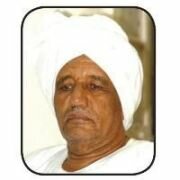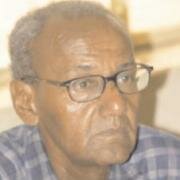Two events dominated the scene in Sudan of late: President Omar Al Bashir highly publicised interview with Hussein Khogali
and the doctors’ strike. Though they stand politically apart, but they have one thing in common, that they signal to a potential change.
In the interview that fell short of answering the pivotal question of what next, the president took the opportunity to send messages to many political opponents including the communists, the arch enemy of the Islamists. He went further to say one of his prominent teacher was a well-known communist figure, even went at length to cite verses of a poem commending a communist figure, who has been assassinated. Less passionate remarks were said about leaders and parties of the Umma, Democratic Unionists, Popular Congress and even Naserites and Baathists. The underlining message is that he is president for all and is willing to extend an open hand.
The second event that signals to a possible change was the strike led by the Central Committee of Sudanese Doctors (CCSD). The week-long strike was a landmark in terms of its achievement, not only in protecting doctors while carrying out their duties (attacks on them had triggered the strike) and improving somehow the work environment, but more important its recognition by the authorities at the highest possible. CCSD held a meeting with Vice President Hassabo Abdul Rahman and health minister Bahar Abu Garda. In another signal absent from the meeting was the pro-government Doctors’ Union.
The orthodox reaction previously was to label such a strike as politically motivated, stick guns with pro-government bodies and try every possible way to break the unity of those striking.
It may be too early to draw conclusions that change is already in the offing, but it is safe to say that what happened represent a signal. However, that signal is not going to build on its own self-generated power to effect change.
That is the work awaiting all political forces on both sides of the isle. The government is sending a clear message that it is willing to extend a hand and is not as committed as it used to be to its followers and slogans.
This gesture in fact, reflects s the growing belief that there is a huge vacuum on both camps and that there is no agreed upon strategy or policies to move forward. Every one speaks about accommodation and state based on citizenship, but nobody is clear about how that is to happen aside from generalities.
It was of great significance that the doctors’ strike coincided with resignation of number of well-known communist doctors from their party. Regardless of whether by mere coincidence or design, but the end result is that there is clear indication to the problems brewing in the opposition camp as well.
This is a time for change, but a sustained change is not waiting for an inspirational leader to lead the people. If there is one lesson learnt from the past 60 years since Sudan gained its independence it is that such role should not be left to the elites club only. Rather the society as such should be an integral part of that change.
-
Third Eye: Beyond the Sight (3)
-
Wake-up Call: Threats to the National Dialogue SuccessNext >


